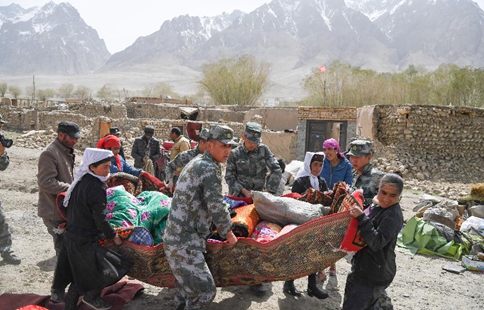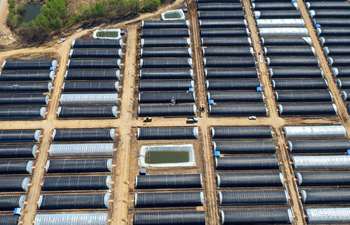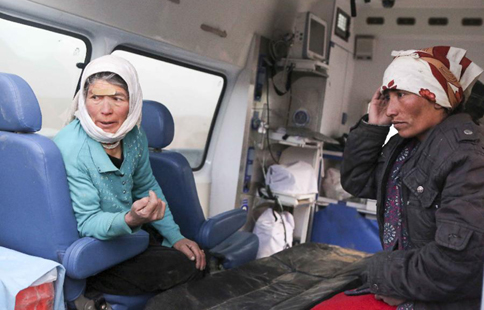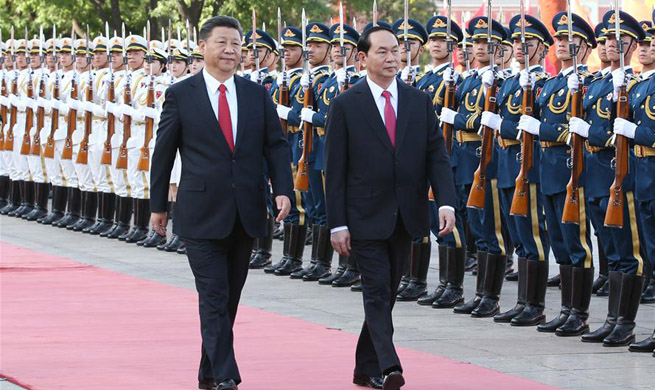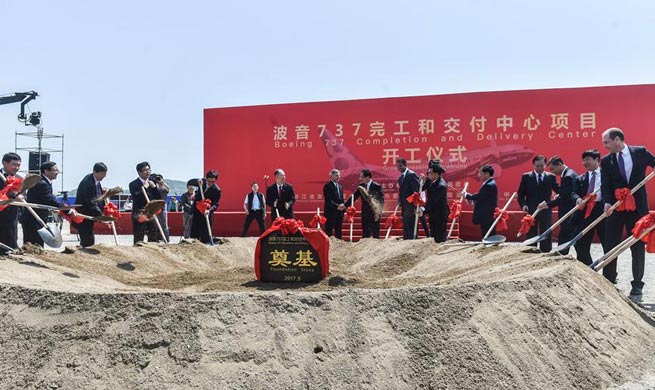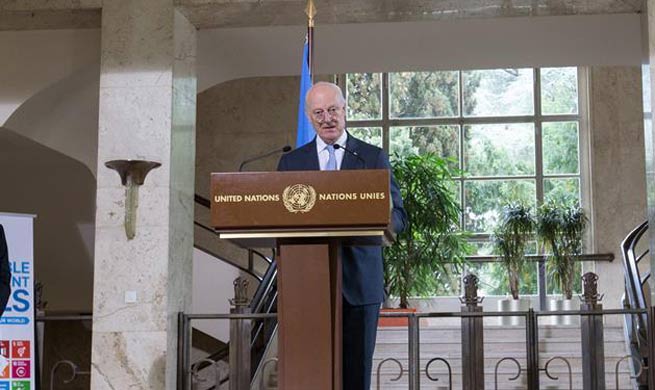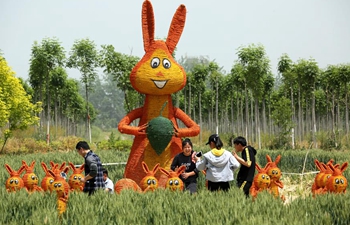BEIJING, May 12 (Xinhua) -- The Bamyan province in central Afghanistan had a rare chance to see the world's tallest standing Buddha again after a visiting Chinese couple revived one of the two Buddhas through an image projection technology.
On June 6, 2015, the Chinese couple successfully projected the image of the tallest Buddha in Bamyan Valley, using the latest cultural relics- friendly technology, winning cheers from the local people.
Bamyan, once a prosperous town in Afghanistan in the pre-war period some three and a half decades ago, has a strategic location, being a major town straddling the ancient Silk Road.
To promote common development and prosperity, China proposed the Belt and Road Initiative in 2013, which comprises the Silk Road Economic Belt and the 21st Century Maritime Silk Road. Since the implementation of the initiative, China, through technological innovation, has brought tangible benefits to countries along the routes.
In Kyrgyzstan, China's high-tech seeds and agricultural technology and skills have helped local families live a better life.
Sherba Kalimovich, the breadwinner of a big Kyrgyz family, had a harvest several times better than before last year when he began to grow corn with high-tech seeds developed by China.
The Kyrgyz farmer plants the Zheng 1002 and Zheng Huangnuo No. 2 corn seeds developed by China's Henan Academy of Agricultural Sciences and successfully bred in an industrial cooperation zone, which was developed by China's Henan Guiyou Industrial Group in 2011 within the framework of the Belt and Road Initiative.
He said his cornfield used to produce four tons per hectare with the old seeds, and now it produces 10 tons. He added that seed quality is no longer a problem.
In 2014, to answer the call of the Belt and Road Initiative and Go Out policy, China's Zhongtai Group and Xinjiang Production and Construction Corps, with strong support from the Tajik government, jointly started the construction of the Zhongtai New Silk Road Agriculture and Textile Industrial Park in Tajikistan's Dangara Basin.
Over just three years, the industrial park has turned from a blueprint into reality. Three Chinese agricultural and textile companies have entered the park, bringing a total investment of 1.1 billion RMB (160 million U.S. dollars) and a whole industry chain of cotton plantation, processing and selling.
The park has enabled the two sides to complement each other. Tajikistan's Dangara Basin enjoys a big temperature difference between day and night, thus local cotton boasts a high quality of thin fiber, high strength and a low sugar degree.
However, due to backward plantation technologies and aging agricultural machinery, local cotton growing largely relies on nature with a very low production.
Chinese companies, on the other hand, possess advanced cotton growing technologies, delicate textile processing skills and rich capital.
China's technological innovation not only improves local people's daily life, but is also changing their traditional way of thinking.
Mitet Zhumabaev, a resident of Kazakhstan's largest city Almaty, has been used to shopping online in the country, which has a less developed light industry and mainly depends on imports to meet its demand for daily necessities, thanks to China's AliExpress
As a frequent visitor to the online shopping site, he said the site is very easy and safe to use and that he can now purchase inexpensive and quality Chinese products without leaving home.
"AliExpress provides an excellent shopping experience," Zhumabaev said.
Two thousand years ago, China-produced silk opened up the ancient routes, and at present, China's idea has again connected countries along the Belt and Road. It is expected that the new routes will reproduce the glory of the past.





